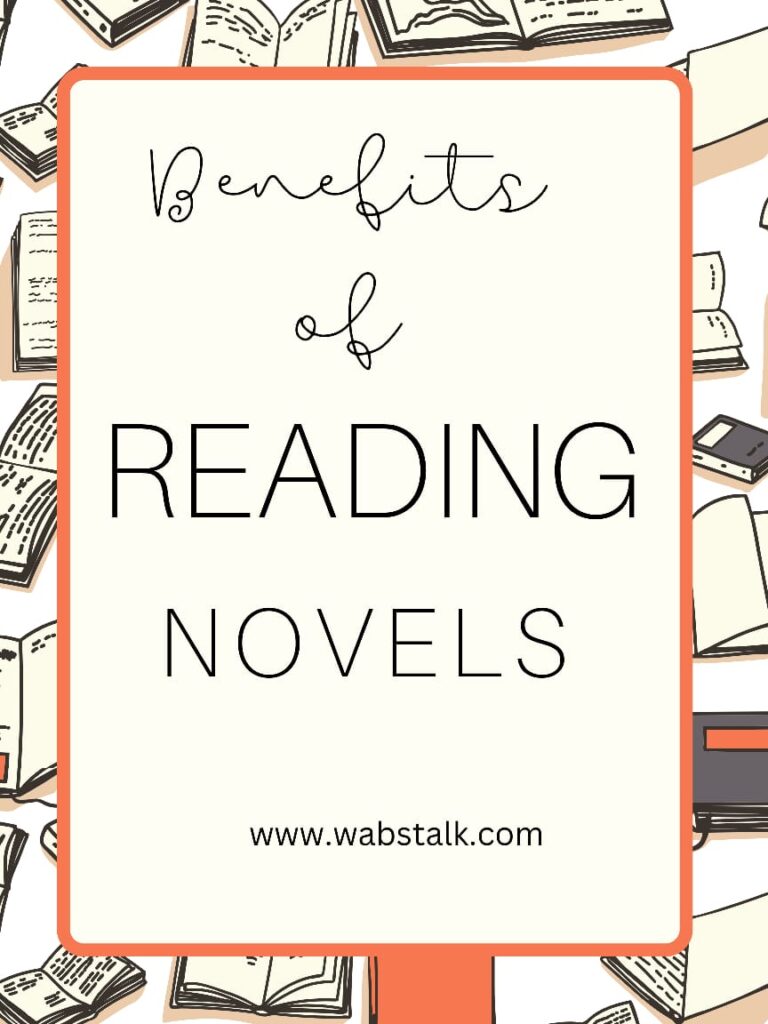
Reading novels offers a wide array of benefits, ranging from personal growth and emotional development to enhancing cognitive functions. Novels provide not just an escape from daily life but also an opportunity for learning, reflection, and self-improvement. Below are several key benefits of reading novels.
1. Cognitive and Intellectual Stimulation:
One of the primary benefits of reading novels is that it stimulates the brain. Engaging with complex narratives, diverse characters, and intricate plots requires mental effort, which in turn keeps the brain sharp. This cognitive exercise helps improve memory, concentration, and critical thinking skills. As readers follow characters through their journeys, they are constantly evaluating situations, predicting outcomes, and recalling information, which strengthens cognitive abilities.
2. Vocabulary Expansion:
Reading novels exposes readers to a wide range of words, phrases, and expressions that they may not encounter in everyday conversation. This naturally expands one’s vocabulary, improving language skills. By understanding words in context, readers gain a deeper comprehension of their meanings and usage. A broader vocabulary not only improves communication but also enhances one’s ability to articulate thoughts more effectively, both in writing and speaking.
3. Improved Writing Skills:
Regular reading of novels can significantly enhance writing skills. Exposure to different writing styles, structures, and genres helps readers understand the nuances of storytelling, pacing, and character development. Aspiring writers, in particular, benefit from analyzing how professional authors construct sentences, build tension, and create engaging narratives. As readers internalize these techniques, they can apply them to their own writing.
4. Emotional Empathy and Understanding:
Novels provide readers with the opportunity to see the world from different perspectives. By immersing themselves in the lives and experiences of characters, readers often develop a greater sense of empathy. They experience the emotions, struggles, and triumphs of characters from various backgrounds, fostering emotional intelligence. This heightened empathy can translate into improved relationships in real life, as readers become more understanding and compassionate toward others.
5. Stress Relief and Relaxation:
Reading novels can serve as an effective form of escapism, offering a temporary break from everyday stresses. The immersive nature of a compelling story allows readers to disconnect from their worries and enter a different world, which can be incredibly relaxing. Studies have shown that reading can reduce stress levels, lower heart rates, and promote relaxation. Whether it’s a fantasy, historical fiction, or mystery, novels can provide a calming escape.
6. Enhanced Imagination and Creativity:
Novels often introduce readers to fantastical worlds and imaginative scenarios. Engaging with these fictional worlds encourages creative thinking and sparks the imagination. Readers are required to visualize scenes, characters, and events, which can expand their ability to think outside the box. This creative thinking is beneficial in all areas of life, including problem-solving, innovation, and artistic endeavors.
7. Increased Focus and Concentration:
In the modern world, distractions are constant, from social media notifications to multitasking. However, reading a novel requires sustained attention, helping to improve focus and concentration. Readers must follow the plot, remember details, and keep track of character arcs, which strengthens their ability to focus on a single task for an extended period. This improved attention span can benefit other areas of life, including work and study.
8. Broadened Knowledge and Perspective:
Novels often explore various themes, historical contexts, and social issues. Through reading, individuals gain insights into different cultures, histories, and worldviews. This broadens their perspective and enhances their general knowledge, making them more informed and open-minded individuals. Whether it’s a classic novel or contemporary fiction, each book contributes to a deeper understanding of the world.
In conclusion, reading novels offers far more than just entertainment. It enriches the mind, nurtures emotional growth, enhances language skills, and fosters creativity. By regularly reading novels, individuals not only escape into fascinating worlds but also gain the tools to improve their cognitive abilities, emotional intelligence, and communication skills.